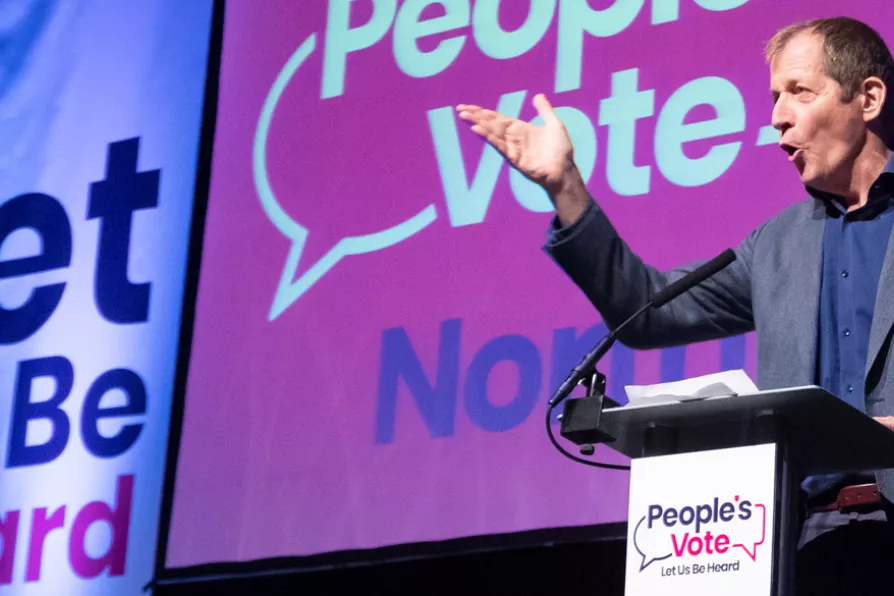The Mandelson scandal reveals a political settlement in which democratic choice is curtailed and the power of markets eclipses the will of voters – only the left can challenge this, writes JON TRICKETT MP

 Alastair ‘Vote for the Lib Dems’ Campbell
Alastair ‘Vote for the Lib Dems’ Campbell
KEIR STARMER blithely announcing “Make Brexit Work” as Labour’s policy makes it look like his previous commitment to reversing Brexit was both very shallow and aimed at replacing the previously left-wing Labour leadership rather than the nation. A policy that won the right back control of the Labour Party, even as it heavily contributed to the 2019 election defeat.
More confirmation that the whole reverse-Brexit People’s Vote campaign was, for some top people, “a stick with which to beat the Labour Party” and “an anti-Corbyn thing” comes from one of the top figures in the People’s Vote campaign itself.
UK In A Changing Europe, a research institute based at King’s College London focusing on Britain-EU relations, is building an archive of interviews of major players in the various Remain and Leave campaigns: the interviews are invaluable and revealing on the People’s Vote.

Martin Taylor, the hedge-fund multimillionaire who has poured millions into pushing Labour rightwards, helped finance Lucy Powell’s supposedly dissenting campaign — suggesting her victory was not the ‘soft-left’ rebellion some have claimed, says SOLOMON HUGHES

In the run-up to the Communist Party congress in November ROB GRIFFITHS outlines a few ideas regarding its participation in the elections of May 2026

Sixty Red-Green seats in a hung parliament could force Labour to choose between the death of centrism or accommodation with the left — but only if enough of us join the Greens by July 31 and support Zack Polanski’s leadership, writes JAMES MEADWAY

Reform’s rise speaks to a deep crisis in Establishment parties – but relies on appealing to social and economic grievances the left should make its own, argues NICK WRIGHT











